Epistemology, Law, and Everyday Experience and Practice, Institute of Social and Cultural Anthropology, Freie Universität Berlin, Germany
Call for Papers: Epistemology, Law, and Everyday Experience and Practice
February 15-16, 2013
Organizers: Prof. Hansjörg Dilger (Institute of Social and Cultural
Anthropology, FU Berlin)
Dr. Małgorzata Rajtar (Humboldt Fellow, FU Berlin/University of Gdansk)
Venue: Institute of Social and Cultural Anthropology, Freie Universität
Berlin, Germany.
Keynote speakers: Prof. Helene Basu (University of Münster) &
Prof. Thomas J. Csordas (University of California, San Diego)
With the growing resurgence of religious practice and healing in many
parts of the world, and the simultaneously ongoing medicalization of
different areas of everyday life, this workshop suggests to debate how
religious and medical phenomena and practices have become interrelated
in emerging assemblages of a globally interconnected world.
While both religious and medical traditions seek to provide wellbeing
and health to their believers and patients respectively, the approaches
they use in treatment and healing, and the epistemological and
legal-institutional foundations on which their ideas and practices rest,
are often very different. Furthermore, especially in European and North
American settings, the split between religion and medicine goes back to
the Age of Enlightenment, resulting in structural and ideological
arrangements that have often entered into friction and may appear less
reconcilable in nature than comparative research from „non-Western‟
settings suggests. In recent decades, the various configurations that
were established here, have been challenged – and sometimes transformed
– by globally circulating technologies, ideas and practices; as well as
the transnational movement of people as patients, doctors, and healers;
and finally ongoing shifts in relations between government, the
commodification and liberalization of healing landscapes, and the
parallel imposition of new legal-bureaucratic practices.
Drawing on ethnographic fieldwork in the participants‟ various research
settings, the aim of this workshop is to creatively engage in discussion
on religious and medical entanglements and/or disruptions in the
contemporary world. We are particularly interested in papers that
address how religious and medical meanings concerning health, mind,
healing, and the body are negotiated and acted upon in everyday
encounters and practices – including, but not restricted to, the way
these encounters and actions make reference to legal-ethical documents,
bureaucratic regulations, and/or historical texts. Contributors are
invited to consider some of the following themes and questions:
(1) “Religion” and “science”: Between epistemological friction and
convergences. What is the current place of religion as envisioned by
medical scientists and health practitioners in specific settings of
biomedical care and research? In what ways are religious issues
addressed in clinical practice, and how does this shape the interactions
between health staff and patients? How are treatment, medication and
technology choices of physicians influenced by their personal religious
convictions, and how do they establish evidence for their respective
treatment methods? How in turn do religious experts integrate their
healing approaches into “scientific” evidence and practice – and how
does the potential incorporation (or rejection) of biomedical science
contribute to their own reputation, authority and charisma?
(2) The intersection of politics, ethics, religion, and bureaucracy.
How
has the historically grown relationship between religion and medicine
been incorporated in legislation and legal texts, and how do
bureaucratic and legal-ethical procedures shape the practices and
interactions in hospitals and clinics as well as among religious healers
and experts? How are legal and ethical barriers and restrictions
concerning the relationship between religion and medicine challenged by
the considerations of individual medical professionals – as well as the
priorities of patients? What decisions on the introduction and implementation of treatment,
medication, technology and health education programs while
delegitimizing others? How do new political-bureaucratic arrangements
influence and regulate healing choices of people, especially with regard
to the religious priorities and affiliations that they may articulate
beyond the narrow confines of medical and religious healing settings?
(3) Shifting boundaries in healing practices. How are the religious
and
(bio)medical dimensions of healing practices embedded and embodied in
the everyday lives of patients? How is the drawing and redrawing of
boundaries between religious and medical healing experienced and enacted
through specific emotional and mental states (such as anxiety or
uncertainty)? How are these intersections – as well as the drawing and
affirming of boundaries – differentiated by factors such as gender,
race, age or educational background? How do doctors and religious
healers appropriate symbols, substances, and technologies from the
respective “other” healing domain, and how does this appropriation lead
to a perceived shift (among patients and healing experts alike) in the
properties as well as the efficacy of healing instruments and materia
medica?
Abstract submission and deadlines:
The deadline for abstract submission is October 10, 2012. Accepted
abstracts will be confirmed by October 25, 2012. While there is no
conference fee for the workshop participants, the organizers are unable
to cover costs for travel and/or accommodation. A publication arising
from the workshop in form of an edited volume or a peer-review journal
special issue is envisioned.
Please send paper title, abstract (no more than 250 words), affiliation,
and contact information to:
Prof. Dr. Hansjörg Dilger
Institute of Social and Cultural Anthropology
Freie Universität Berlin
Landoltweg 9-11
14195 Berlin
Email: hansjoerg.dilger@berlin.de
Dr. Małgorzata Rajtar
Alexander von Humboldt Postdoctoral Fellow,
Institute of Social and Cultural Anthropology
Freie Universität Berlin/Institute of Archeology and
Ethnology,University of Gdańsk, Poland
Email: mrajtar@yahoo.com

